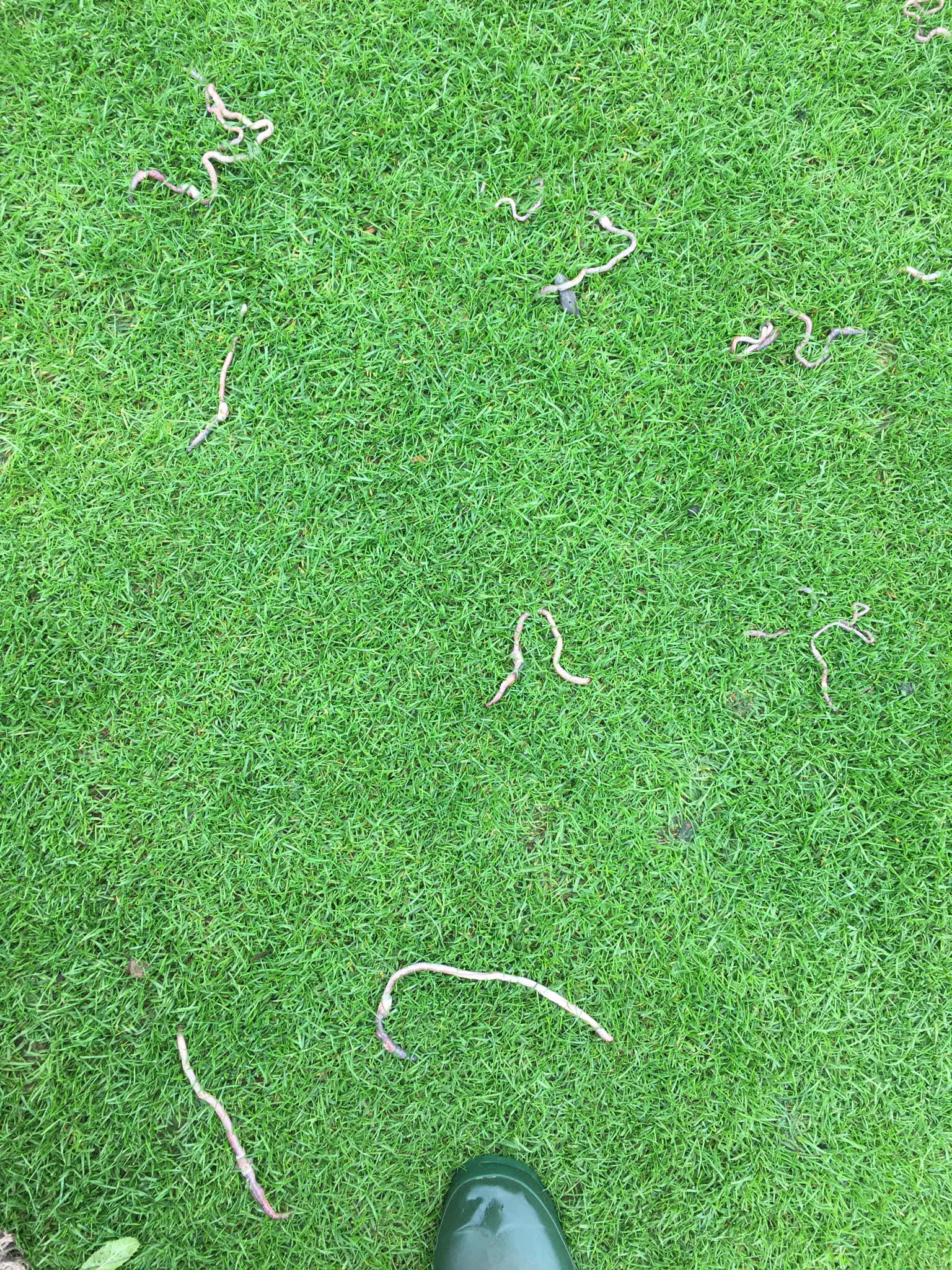The Worm Predicament
Most people are aware of the remarkably good job earthworms do as natural soil engineers. However the casts left by two species of earthworm can be a problem for some green keepers of golf courses, bowling greens, cricket grounds and the like. This is particularly so in areas where the soil is a heavy clay.
In a move to keep their members happy, some course managers are going to drastic lengths to get rid of the worms. They are using a plant-based product which is advertised as a ‘soil conditioner’ but has a powerful ingredient (saponins from the tea tree) which is known to kill earthworms. And it does, in their hundreds after rainfall. The previously used pesticide ‘Carbendazim’ killed worms “efficiently” but this was banned in 2016 as it was found to be harmful to humans.
I have been asking around to find out what other clubs use to deter worm casting. It is apparent that not all clubs have this problem, these tend to be where the soil is sandier or on chalk. Some clubs find dressing with sand is a good enough deterrent as the coarseness of sand is uncomfortable for worms. Others apply ferrous sulphate which makes the soil too acidic for the worms liking and some clubs find brushing the casts is sufficient to get rid of the problem. There is also a product called ‘Amvista Squirm’ that the suppliers say does not harm worms just makes the soil more acidic so they move away.
I am trying to find an efficient and harmless way of helping green keepers to rid themselves of casts which would make it unnecessary to kill worms. I have asked various soil scientists, ecologists and an agronomist what could be used safely, but none of them have encountered this problem before. Could I ask you, dear golfer, to make enquiries at your clubs and through your golfing acquaintances how worm casts are treated in your neck of the woods? I would love to be able to solve this problem and save our worms from a horrible death. If you have any suggestions, please could you email dianalbarnett@outlook.com.
Diana Barnett
In case people wonder about me, you could say that I live in the Thames Valley. I am the secretary of a local environmental group that is working hard to encourage our community to leave the smallest footprint possible – climate and nature wise. My goal is to spend the rest of my time on this planet being a voice for the voiceless, be they human or non-human species, living now and in the future.



